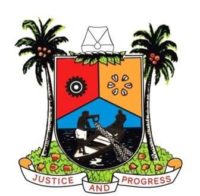LASG TRAINS 1000 ACCOUNTANTS ON Y2020 FINANCE ACT
Lagos State Government, through the State Treasury Office, has trained 1,000 Finance and Accounts Officers to acquaint them with the provisions of the Finance Act of 2020 as amended.
The Finance Bill which was assented to by President Muhammadu Buhari after it was passed by both arms of the National Assembly is expected to come into force in the Y2021 calendar year.
The Commissioner for Finance, Dr. Rabiu Olowo, made the disclosure during a recent virtual training programme, saying that the training became necessary in order to keep the Accountants, who are directly involved in the payments and receipts of government expenditures, up-to-date with the application of the new Act to government transactions.
According to him, training the officers on the provisions of the new law will help in identifying some grey areas in the law and how some of its peculiarities could best be handled by the accountants.
Olowo said, “It should be noted that like every new law, the Finance Act, 2020, is likely to come with its challenges and opportunities for businesses and individuals. Therefore, Finance and Accounts officers are advised to seek professional guidance in order to understand how the Finance Act will impact their operations going forward and any new compliance obligations to be discharged or benefits to be enjoyed”.
Also speaking at the training, the State’s Accountant-General and Permanent Secretary, State Treasury Office (STO), Dr. Abiodun Muritala, stated that the need to keep the accountants abreast of new trends in the profession made the State Government engage the services of ADRAC Professional Services Limited for the training.
“It is a two-day online training on the Finance Act 2020 aimed at improving the knowledge and skills of all the Finance Officers in the various Ministries, Departments and Agencies (MDAs) of the State”, the Accountant-General added.
He expressed hope that the training would help raise the necessary awareness required to defray public expenditure, support a sustainable increase in public revenue and ensure that tax law provisions are consistent with the National tax policy objectives of the Federal Government of Nigeria.
Dr. Muritala highlighted some key provisions in the Finance Act of 2020 to include Capital Gains Tax Act, Companies Income Tax Act, Industrial Development (Income Tax Relief) Act, Personal Income Tax Act, Tertiary Education Trust Fund Act and Customs & Excise Tariff (Consolidation) Act.
Others are Value Added Tax Act, Federal Inland Revenue Service (Establishment) Act, Fiscal Responsibility Act, Public Procurement Act, Companies and Allied Matters Act, Nigerian Export Processing Zone Act and Oil and Gas Export Processing Free Zone Act.





